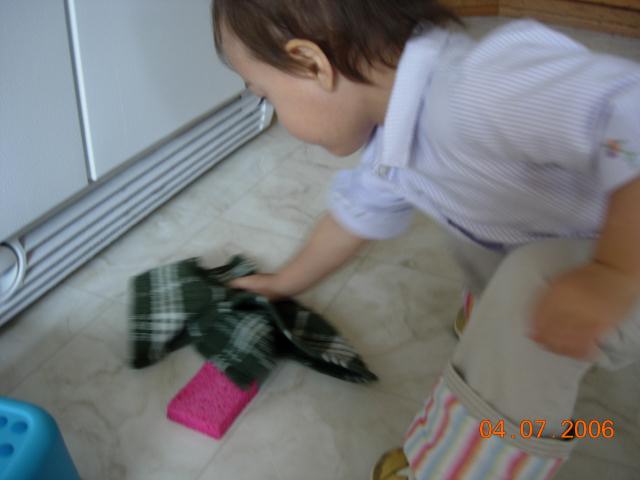This creates a positive cycle in which:
1) You notice some behaviors you don’t like.
2) Rather than focusing on those behaviors, you offer alternatives in the form of tasks, jobs, or responsibilities (careful here though, these must be tasks that would be nice to have done, but which are true requests- not demands).
3) Kids step up and become more willing and able to help out.
4) You notice and respond positively to these new behaviors.
5) The old behaviors you didn’t like naturally disappear as your child stretches to learn and grow.
6) Kids get the positive attention they’ve been craving all along, and now they’ve learned how to be productive with their extra energy!
When I’ve done this in preschools I’ve seen young people go from “troublemaker” to “teacher’s pet” in a matter of days. I’m not kidding, the very kids that were driving me crazy, messing up other people’s work, and just causing a ruckus became model citizens who in turn helped other kids to stay on task, follow the rules, and clean up after themselves.
Kids can choose a number of paths, some that help them assume responsible, self-sustaining and caring roles in their communities, others that disrupt peace, hurt others and require attention adults usually don’t enjoy giving.
But here’s the thing- the destructive path only gets them so far. Sure, there’s the initial thrill of shocking those around them, and maybe there’s even a payoff of extra attention. Perhaps they even get a little extra respect at first as they begin to experience their own power.
A note on attention—Young people often either can’t or don’t distinguish between positive and negative attention very well. Either one is more attention after all. And for a kid who’s hungry for attention, even negative attention feels good. So, consider for a moment that rather than trying to tick you off, kids are really just trying to meet their own needs for attention!
And then the thrill wears off…
Because ultimately it’s in kids’ best interest to remain aligned with the adults in their lives. They have an innate drive to be connected with the people who feed, clothe, and bathe them.
So, after a while, the more connected, constructive path begins to look a lot more appealing. Because when we can teach kids how to use their intelligence and inspiration to help and support (rather than be destructive to) their families and communities, we’re inviting them into a much more fulfilling role to play. And not just for now, but for their entire lives!
But whatever path your child is choosing in a given moment, the more we can remember to hold them with compassion and keep in mind that they’re always doing their best to meet their needs, the more we can model the peaceful, loving behavior we’re really wanting from them.
And, like it or not, your kids will behave like you do.
So, remember that you’re the leader, helping the young people in your life choose the path that’s most life-giving and enjoyable by seeing the positive intentions behind all their behaviors, even the ones that bug you the most.
And when they’re willing, give them jobs and tasks to help them build a stronger foundation of trust and responsibility.
I’d love to hear about your experiences as you try this out. Please leave a comment here…
Love and hugs, Shelly



I guess we’d need to make sure it was a responsibility that he wanted. Not that we should only give him responsibility that he wants but if we’re trying to use it in this sense, to relieve bordem. I may not be explaining myself well. I’m going to try to give him responsibilities that he thinks are “grown up.”